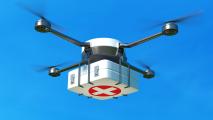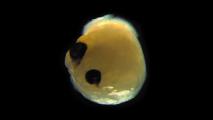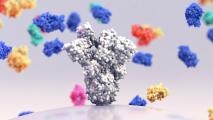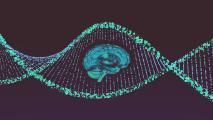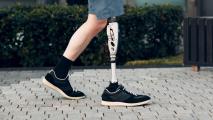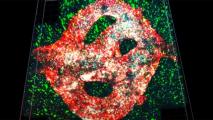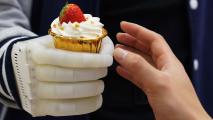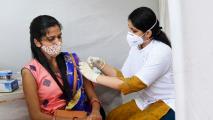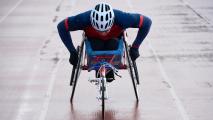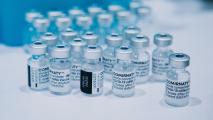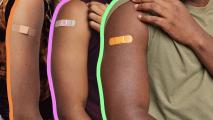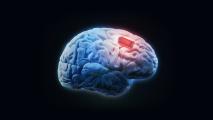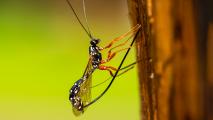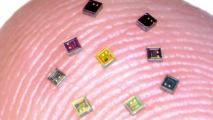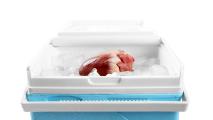
Biotech
Human history has been all but defined by death and disease, plague and pandemic. Advancements in 20th century medicine changed all of that. Now advancements in 21st century medicine promise to go even further. Could we bring about an end to disease? Reverse aging? Give hearing to the deaf and sight to the blind? The answer may be yes. And soon.
More
World-class surfers help kids with disabilities ride the waves
Ten children with disabilities got a chance to go surfing through an adaptive sports program at NYC’s Hospital for Special Surgery.
Drone ambulances race to help cardiac arrest victims (Updated)
Drone ambulances deliver defibrillators to suspected cardiac arrest victims more quickly than traditional ambulances in a Swedish study.
Mini brains grown in the lab sprout primitive “eyes”
Researchers have grown mini brains with light-sensitive eye structures that could lead to breakthrough treatments for vision disorders.
Antibody cocktail highly effective at preventing COVID-19
An antibody cocktail developed by biopharmaceutical company AstraZeneca was highly effective at preventing symptomatic COVID-19 infections.
Brain-wide gene editing may one day treat Alzheimer’s
Researchers have developed a brain-wide gene editing technique that treated Alzheimer’s disease in mice.
Tiny magnetic beads and turkeys may lead to better prosthetic limbs
MIT and Brown researchers have developed a technique using implanted magnetic beads that they hope will lead to better control of prosthetic limbs.
Researchers have 3D-printed an active tumor
Tel Aviv University researchers have 3D-printed an active glioblastoma tumor, potentially paving a way to better study the lethal brain cancer.
MIT has created an inflatable prosthetic hand
MIT researchers have created a soft, inflatable prosthetic hand that provides advanced abilities at a fraction of the cost and weight.
The bold plan to bring back the American chestnut
Researchers plant a small experimental orchard of hundreds of transgenic American chestnut trees near the coast of Maine, to restore the species.
India’s DNA vaccine for COVID-19 gets emergency approval
India has granted emergency approval to the world’s first DNA vaccine for COVID-19.
Who to watch for at the Tokyo Paralympics
Here are five athletes to watch at the 2020 Tokyo Paralympics and one Afghan competitor whose future at the Games is still uncertain.
Scientists are vacuuming DNA from the air to study biodiversity
Researchers have proven that the atmosphere contains measurable amounts of eDNA, and they can vacuum it from the sky.
Pfizer’s shot is the first FDA-approved COVID-19 vaccine
Pfizer’s shot has become the first FDA-approved COVID-19 vaccine, making the transition from emergency use authorization on August 23.
Beyond Sunday Service: How one Montgomery church is bringing health equity to their community
A grassroots approach to vaccine education is happening in the heart of the civil rights movement in Alabama. Does this church hold the key to overcoming medical mistrust?
How a brain implant can stop pain instantly (in rats)
A new brain implant can instantly detect pain signals and provide bursts of stimulation that are pain-relieving. Researchers have shown it to be successful in rodents.
Farmers in England begin massive DIY “rewilding” effort
Farmers in East Anglia are organizing what may be England’s largest rewilding project.
Scientists grew healthy mice from artificial eggs cells and ovaries
For the first time, researchers have created mice from egg cells and ovaries grown from stem cells.
Wasps inspire a new surgical needle
The next new surgical tool may come from an odd place: parasitic wasps whose eggs eat their hosts inside-out.
Implantable “neurograins” may be the key to mind-controlled tech
A new kind of brain-computer interface uses tiny neural implants called “neurograins” to record brain activity in rats.
New organ coating could help prevent transplant rejection
A coating for donor organs that minimized the chance of transplant rejection in mice might one day eliminate the need for immunosuppressants.
Get inspired with the most innovative stories shaping the world around us.














